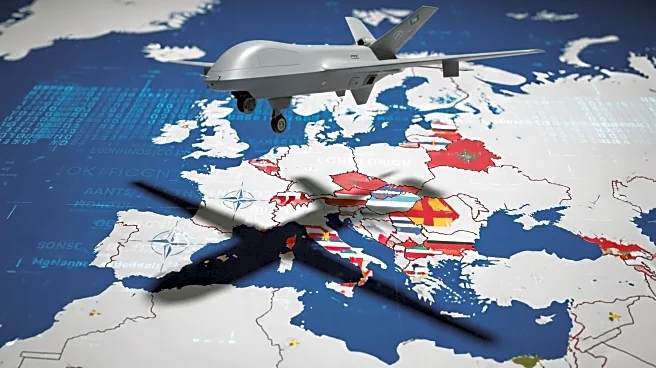What's Happening?
Former US Vice-President Mike Pence has expressed concerns over the potential expansion of Russian aggression beyond Ukraine. In an interview with BBC Newsnight, Pence stated that if President Vladimir Putin succeeds in his military objectives in Ukraine, it could lead to Russia crossing into NATO territories. He emphasized the need for security guarantees in Ukraine to ensure a 'just and lasting peace.' Pence's comments highlight the ongoing geopolitical tensions and the potential implications for NATO countries if Ukraine falls to Russian control.
Why It's Important?
The warning from Mike Pence underscores the broader geopolitical risks associated with the conflict in Ukraine. If Russia were to extend its military actions into NATO countries, it could trigger a significant escalation involving NATO's collective defense mechanisms. This scenario would have profound implications for international security and could lead to increased military engagements and economic sanctions. The stability of Eastern Europe and the security of NATO member states are at stake, making Pence's call for security guarantees in Ukraine a critical point of discussion among policymakers.
What's Next?
The international community, particularly NATO member states, may need to reassess their defense strategies and diplomatic approaches in light of Pence's warning. Discussions around bolstering military support for Ukraine and reinforcing NATO's eastern borders could gain momentum. Additionally, diplomatic efforts to negotiate peace and prevent further escalation may become more urgent. The situation demands careful monitoring of Russia's actions and strategic planning to safeguard NATO territories.
Beyond the Headlines
Pence's comments also reflect the broader challenge of balancing deterrence and diplomacy in international relations. The potential crossing of NATO borders by Russia would not only test military alliances but also the effectiveness of diplomatic negotiations in preventing conflict. The situation raises questions about the long-term strategies needed to address aggressive actions by state actors and the role of international organizations in maintaining global peace.









